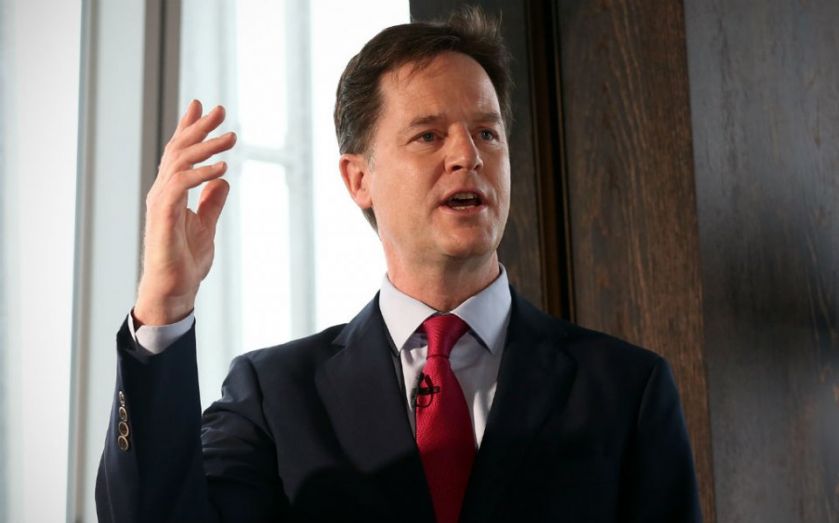General Election 2015: Nick Clegg pledges measures to get one million more women in work by 2020

The deputy prime minister Nick Clegg has said the Liberal Democrats will aim to get one million more women into work by 2020.
The ambitious plans, outlined by the Lib Dem leader at the British Chambers of Commerce annual conference, would place the UK in the top five OECD countries for female employment.
If elected to government in May, the Lib Dems will introduce more paternity leave for fathers, extend free childcare, and increase the amount carers can earn while still qualifying for benefits.
The party will also force companies to make public the average pay of male and female workers if they employ more than 250 people.
"There is one glass ceiling in British society that is still proving difficult to break through," Clegg said. "We want to see a million more women employed, but crucially we want them treated equally to men once they're in work too."
To increase the current 6.5m women in work to 7.5m over the next five years, the new paternity leave would be a month’s “use-it-or-lose-it” offer to incentivise fathers to take time off after their baby is born.
Free childcare would be expanded to all two, three and four-year-olds.
Clegg said there were too many businesses letting the status quo persist – but acknowledged that breaking the glass ceiling was as much a challenge for politics as for business, admitting the Lib Dems were “too male and too pale”
“There are too few women in parliament and at the highest rungs of government. And no party is exempt. My own parliamentary party is too male and too pale. We can and must do more to make sure our party and our politics is more representative of the people we serve. If we’re going to smash the glass ceiling then we, government and business, need to be ambitious,” he said.
Clegg said he also wanted to narrow the gap in the numbers of male and female entrepreneurs by investing more in supporting and training for female business mentors and encourage greater take up among women of the Business Ban’s Start Up Loans programme.
"I am extremely proud that there are now more women in work in Britain than ever before. There are more women on the boards of our major companies than ever before. There are more opportunities for women than we have ever had in Britain before. We have started to crack the glass ceiling, but we are still a long way from smashing it.”